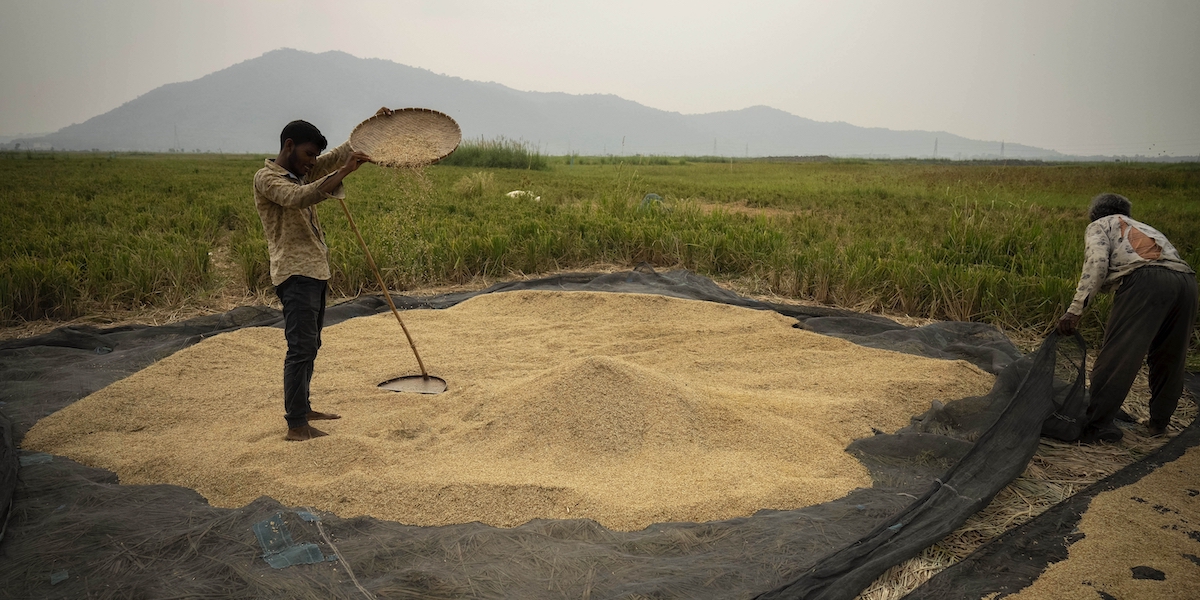The Indian government banned rice exports on Thursday, with the exception of the basmati variety, to try to contain prices in the domestic market. Over the past year, rice prices have risen more than 11 percent; the increase was 3 percent in the last month alone because the particularly heavy rainfall of the current rainy season damaged the crops. Now, however, the blocking of exports could be a problem for other Asian and especially African countries because India is the largest exporter of rice of the world: it produces almost 40 percent of the rice traded internationally.
Due to the rains in recent weeks, many rice fields in northern Indian states such as Punjab have been submerged for more than a week, which has destroyed the youngest plants. Farmers will be able to plant new ones, but will have to wait for floodwaters to flow back into rivers and aquifers. In other Indian states, however, it has not rained enough to be able to grow rice.
This season’s production will be lower than usual. As it is cheaper for farmers to sell overseas, the Indian government has stepped in to safeguard supplies for the Indian market. He has however made it known that he will evaluate exceptional exports in the event of food safety problems in certain countries.
Global rice prices are already at their highest in 11 years and Indian export cuts could cause problems similar to Ukraine’s reduced wheat exports due to the Russian invasion. Meanwhile, the prices of rice exported from Vietnam have increased, which after India and Thailand is the third exporting country in the world, due to concerns related to the return of El Niño, that set of periodic atmospheric phenomena that occur in the Pacific Ocean and, among other things, cause an increase in rainfall in Southeast Asia. It is possible that the Indian government’s decision will cause Vietnamese rice prices to increase further, with consequences for China and the Philippines, which are major buyers. Rice is the most consumed food raw material in the world.
Last September, Prime Minister Narendra Modi’s government had already banned wheat exports and introduced a new tax to reduce rice exports, again to limit inflation on foodstuffs. Recently, the price of vegetables such as tomatoes has also risen a lot in India, again due to damage to crops due to heavy rains.
Next year there will be national general elections in the country, while in the coming months there will be many state elections.
– Read also: What exactly is curry
